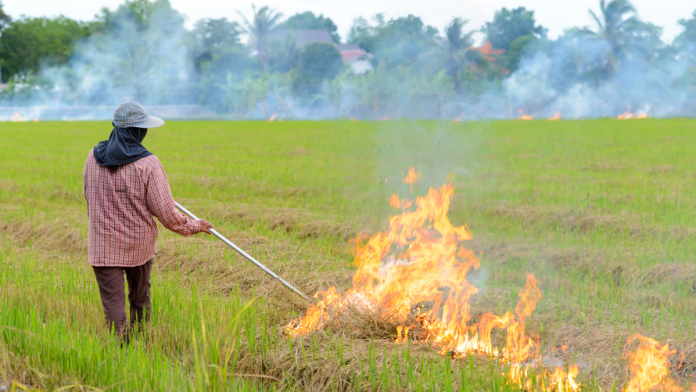News in brief: Thailand’s agricultural body is calling on the government to ban crop burning to improve air quality, citing the health risks associated with PM2.5 particles and the need to meet international farming guidelines.
Thailand’s agricultural body is urging the government to ban crop burning to improve air quality, after a spike in dangerous pollution left millions needing medical treatment earlier in the year.
Crop burning is a major source of PM2.5 particles, which are so tiny they can enter the bloodstream. Exposure to them causes a range of health problems, including respiratory infections, heart disease, and cancer.
The head of the Thai Feed Mill Association, Pornsil Patcharintanakul, said the government should ban crop burning, as reported by a news outlet. He added that government should follow international farming guidelines that forbid the practice. Furthermore, he said three years was a realistic timeframe in which to ban the practice.
Pornsil’s call comes as the European Union begins to enforce its Carbon Border Adjustment Mechanism (CBAM), which charges for emissions linked to the production of imported goods. Thailand is a major exporter of agricultural products to the EU, and a ban on crop burning would help the country to meet its climate goals.
The Thai government has said that tackling PM2.5 is one of its priorities, but it has not yet given details of what it plans to do. Environmental groups are calling on the government to take immediate action to ban crop burning and protect public health.
Subsequently, a ban on crop burning would have a significant impact on farmers in Thailand. Many farmers rely on crop burning to clear their fields and prepare them for the next crop. However, there are alternative methods that farmers can use, such as tilling the soil or using mulches.
The government is expected to provide financial assistance to farmers to help them transition to alternative methods. The government could also work with farmers to develop new agricultural practices that are more sustainable and environmentally friendly.
Recall that India is also working on a way to stop this same harmful practice and has reached a resolution to end it by the end of 2023. Agriculture and biomass burning contributes over 13% of the air pollutants in the whole of Asia.



